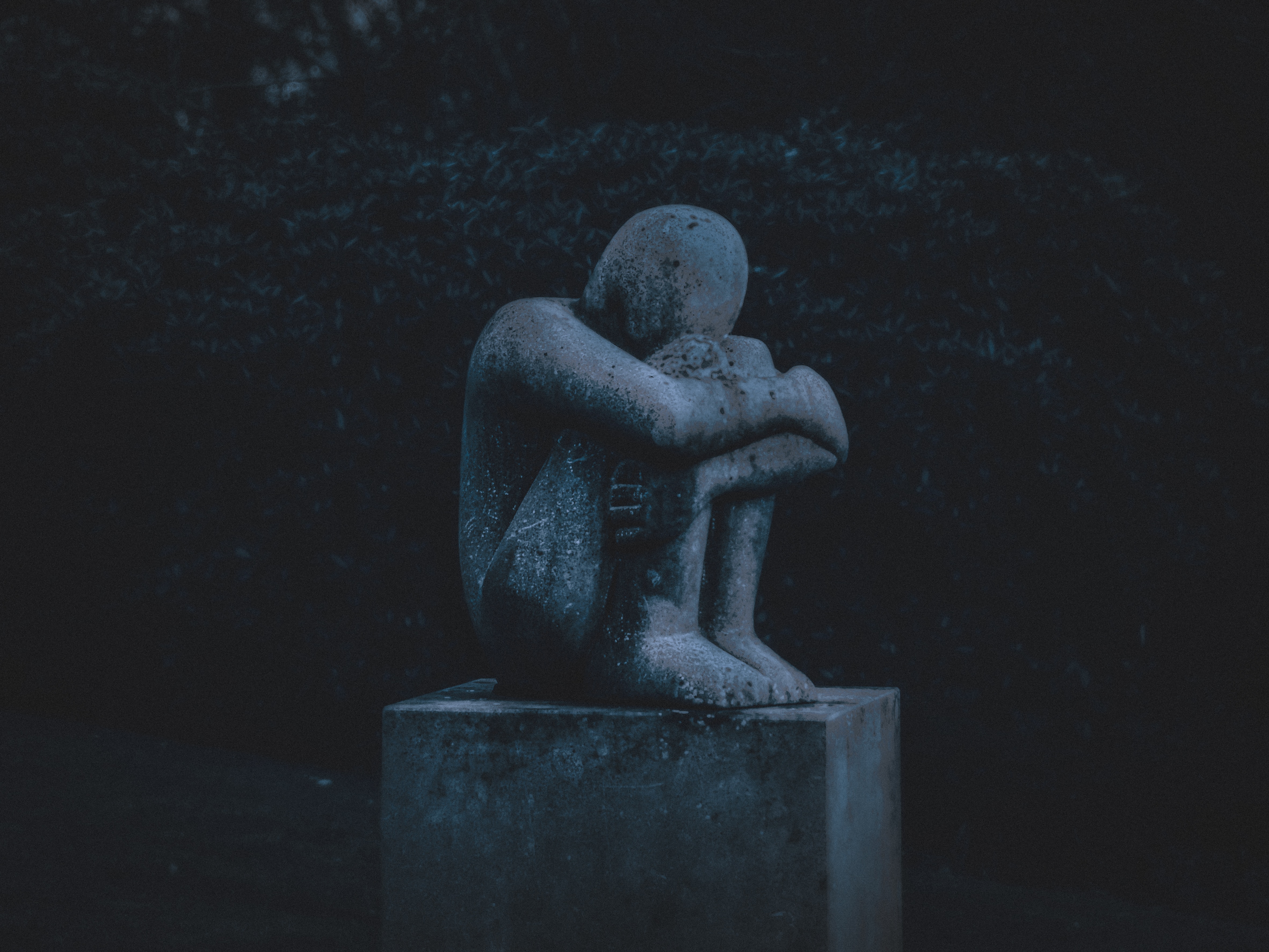
(Unsplash/K. Mitch Hodge)
Editor’s note: In anticipation of the upcoming Witness & Grace Conversations: A Health Care Forum on Mental Wellness, Global Sisters Report is republishing a selection of columns that explore how mental health challenges such as burnout, trauma, anxiety and depression quietly touch religious life and ministry. The forum, taking place on July 1, will provide the space for sisters to openly share resources and break the silence around mental wellness in community life. Registration closes on June 27.
"The song is ended, but the melody lingers on." (Irving Berlin)
I have been observing and mulling over her presence a long time, especially during this last decade. Her name is grief.
Women and men religious have experienced personal and congregational losses and endings throughout their lives, including numerous forfeitures during this last three post-Vatican II period. They have said goodbye to women and men they have loved for decades, sisters and brothers who have left them for their eternal home and who have not been replaced by incoming postulants and novices. They have been meeting together and in inter congregational settings to speak of transformation, mergers and even endings as they watch numbers decline.
Generous, competent laity are replacing religious women and men in parishes, educational institutions, hospitals, social agencies and in the wide variety of venues where they have served God's people since the 1800s. Additionally, they are leaving behind the energies of 50 years and learning to embrace the gradual loss of physical and mental strengths and abilities that empowered them to serve in those missions and ministries: memory, hearing, sight, mobility, ability to organize complex systems and adeptness with technology.
Each change of health, ministry, move, and every letting go of what was means a new loss, and with it, an experience of grieving. These add up, and she or he often raises questions about self-worth or identity, as well as deeper questions about the meaning of one's vocational commitment, faith or life itself. We grieve. Many happenings in our current lives take us back to our losses. Colette, the French author wrote:
It's so curious; One can resist tears and 'behave' very well in the hardest hours of grief. But then someone makes you a friendly sign behind a window, or one notices that a flower that was in bud only yesterday has suddenly blossomed, or a letter slips from a drawer ... and everything collapses.
There is, however, a larger picture. American citizens in general "move on" from one site or job to another, often in quick succession, before they have time to grieve elements of the complex world they had just left. Moreover, watching the traumas in the world around us leaves us in a heap of grief: earthquakes, floods, fires, political discord, sexual identity confusion, church divisions, school shootings, domestic violence.
All of us need "grief time," "breathing time" or "retreat time" after this bucketful of losses because each loss affects us physically, emotionally, spiritually and intellectually.
Advertisement
Emotionally, people are affected differently; some have difficulty concentrating, some withdraw, some turn to drinking, smoking or using drugs. Some people have thoughts of hurting themselves or others, or of destroying property — one possible explanation for the destructive violence in our society, such as mass shootings and hate speech.
Physically, some people feel exhausted or suffer from insomnia or find that their immune systems have been weakened, making them prone to colds or illnesses. Others lose their appetites or gain weight, and some experience stomach aches or headaches.
Spiritually, people have reported that they dream of loved ones, feel their presence or hear their voices. Others find that losses lead them to search for meaning, examine their faith, question the existence of God, consider the relevance of their vocations or explore their spiritual beliefs in general.
As time goes on, many people do find a positive value in grief, saying that the losses helped them grow. They gained a new sense of wisdom, became more mature, and grasped a deeper meaning of life itself. Many individuals find it healing to talk about their grief with friends or to form and attend grief groups. Shakespeare, in "Macbeth," put it this way:
Give the sorrow words; the grief that does not speak knits up the o-er wrought heart and bids it break.
Many learn to cherish not only what was, but also what will be. Helen Keller, whose losses and deprivations were so beyond anything most of us can imagine, assured us:
What we once enjoyed and deeply loved we can never lose. … For all that we love deeply becomes part of us.
While most of us ignore or resent the "she or he's in a better place" talk, or, "Something good comes out of what was bad" assurances, it has been the case for most, or at least many people, that they find consolation in the reality that there is a creative force in the universe, a God or Absolute Being, who can assist people of any age in growing as they process and live with their losses, and in finding light where darkness had clouded their everyday lives.
When our days become dreary with low-hovering clouds of despair, and when our nights become darker than a thousand midnights, let us remember that there is a creative force in this universe, working to pull down the gigantic mountains of evil, a power that is able to make a way out of no way and transform dark yesterdays into bright tomorrows. (Martin Luther King Jr.)







